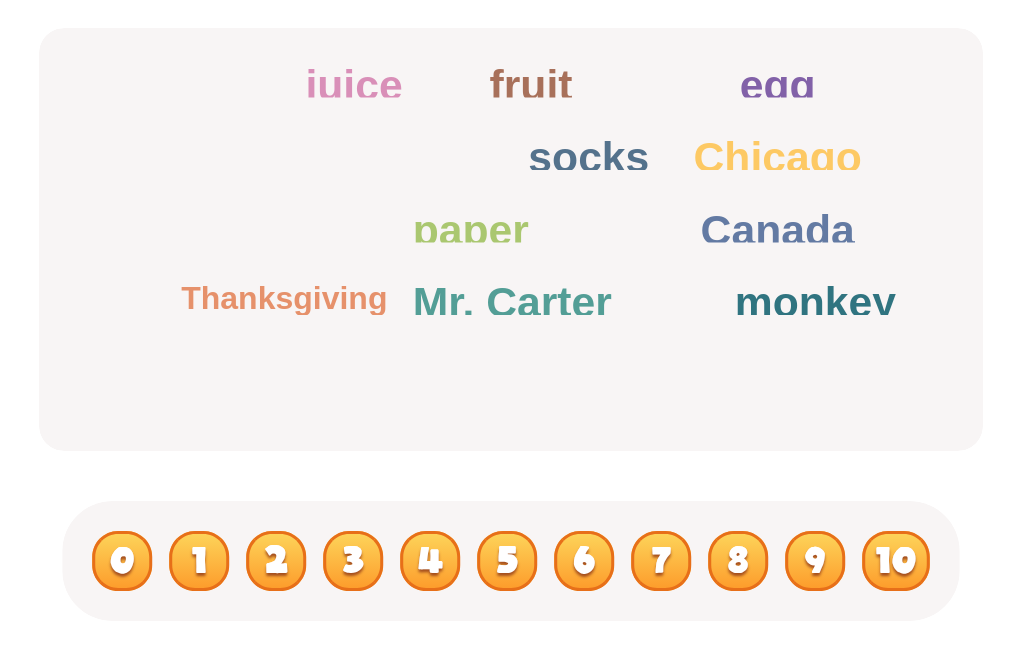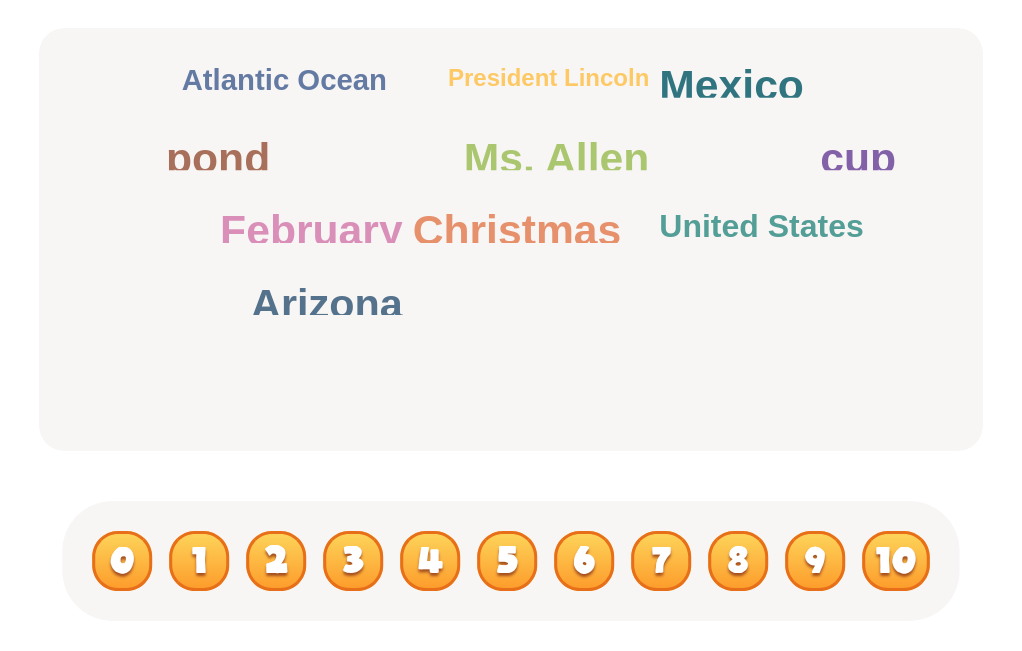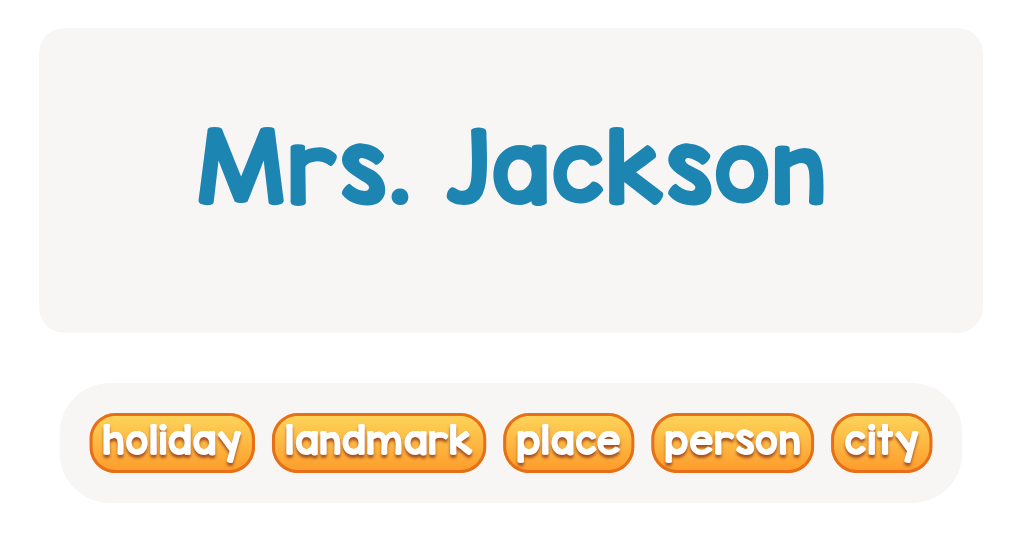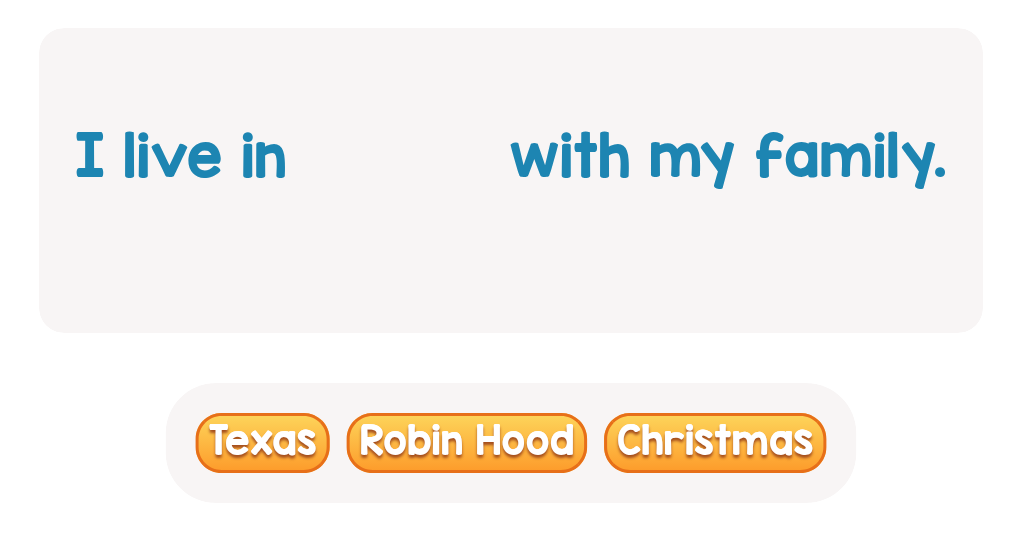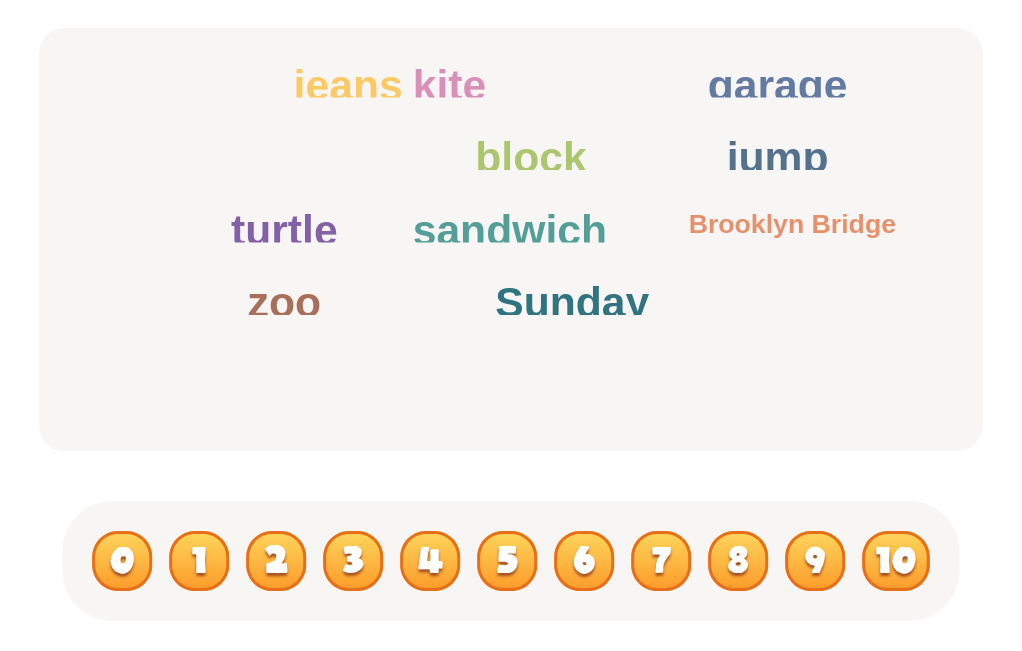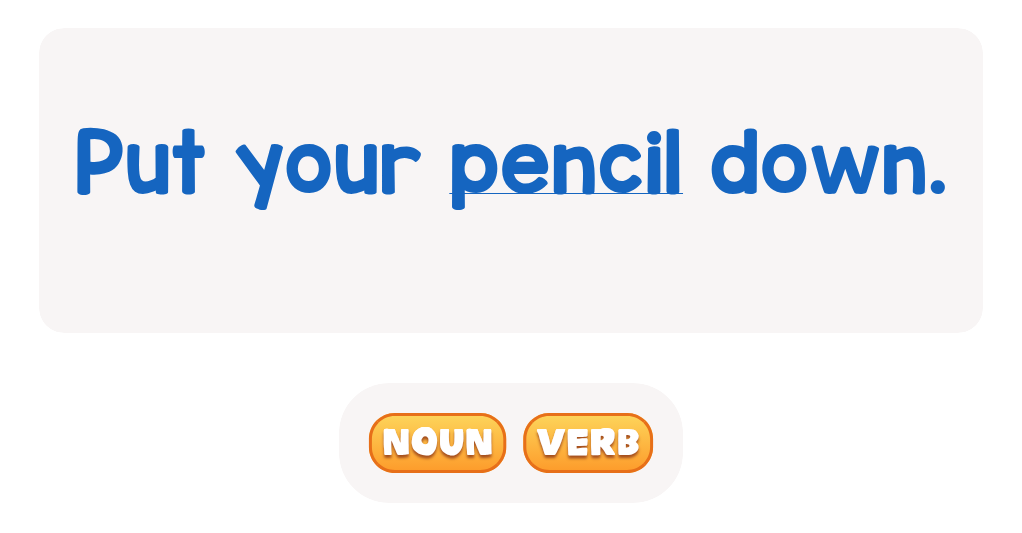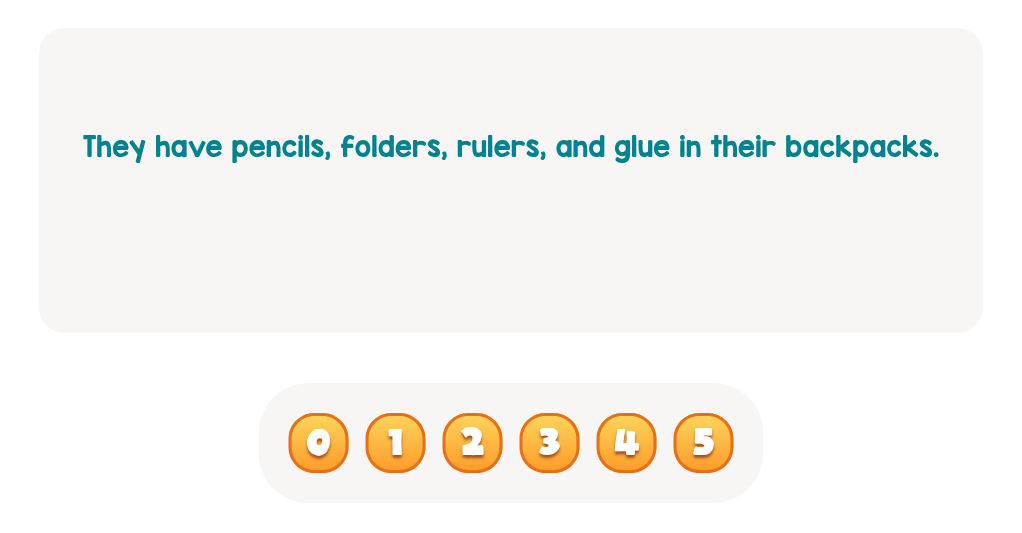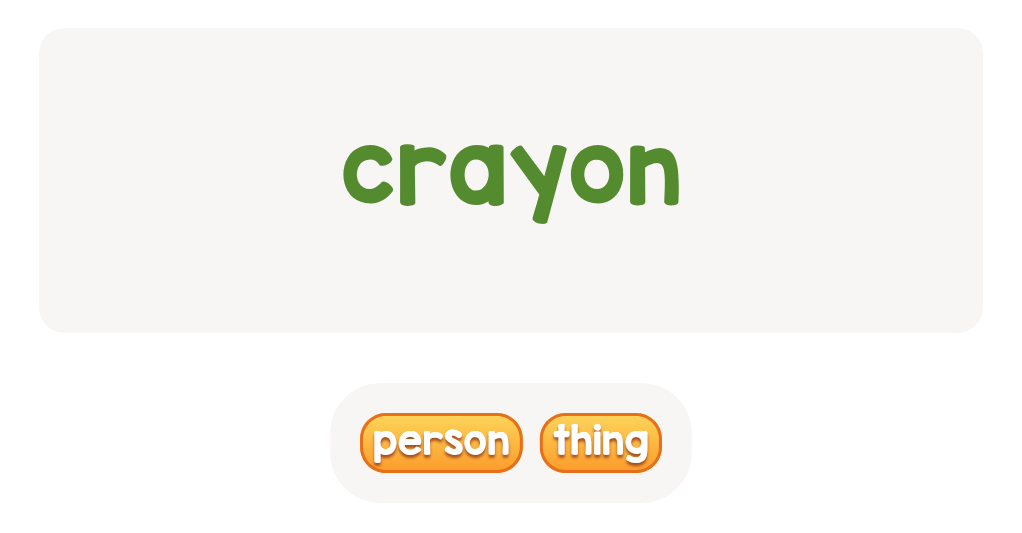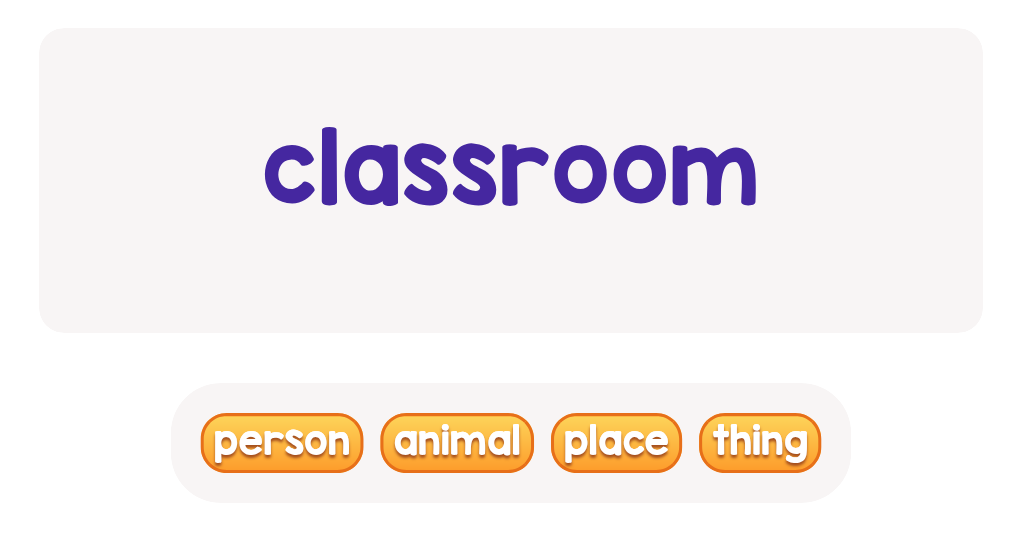Grammar practice Grammar Worksheets for Ages 3-5
6 filtered results
-
From - To
Welcome to our Grammar Practice Worksheets for ages 3-5! Designed to introduce young learners to the basics of grammar, these engaging worksheets provide a fun and interactive way for preschoolers to develop essential language skills. Focused on foundational concepts such as nouns, verbs, and sentence structure, our resources support early literacy and comprehension. Each worksheet encourages creativity through colorful illustrations and playful exercises, ensuring that learning grammar is enjoyable. Ideal for parents and educators, these printables can be easily incorporated into home and classroom activities, nurturing a love for language from a young age. Explore our collection and inspire your child's linguistic journey!
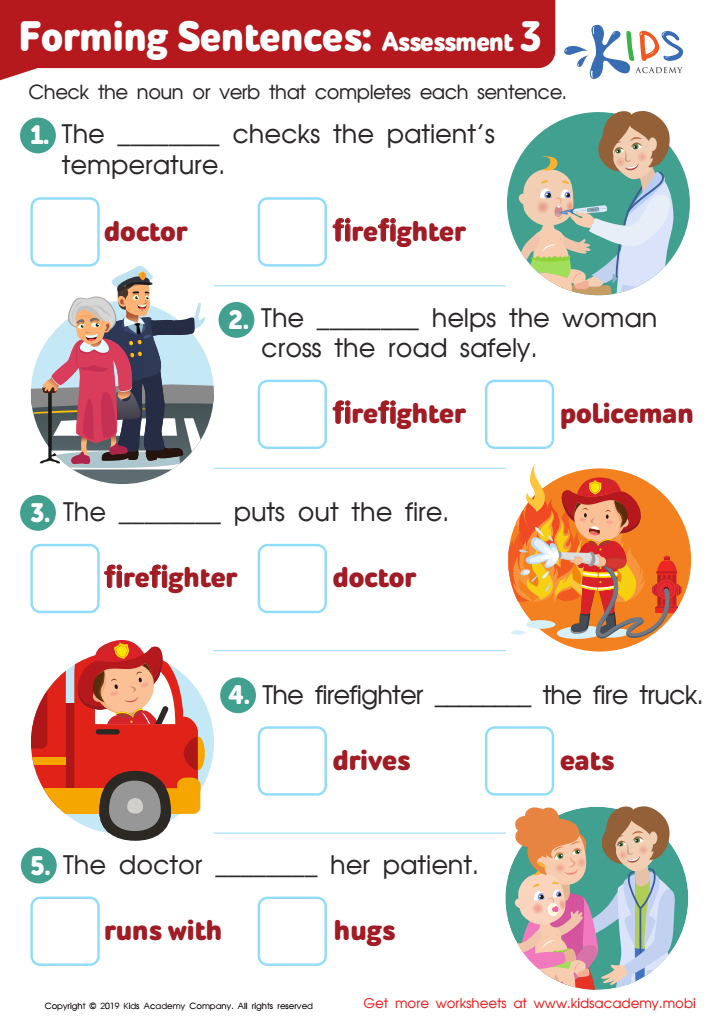

Forming Sentences: Assessment 3 Worksheet
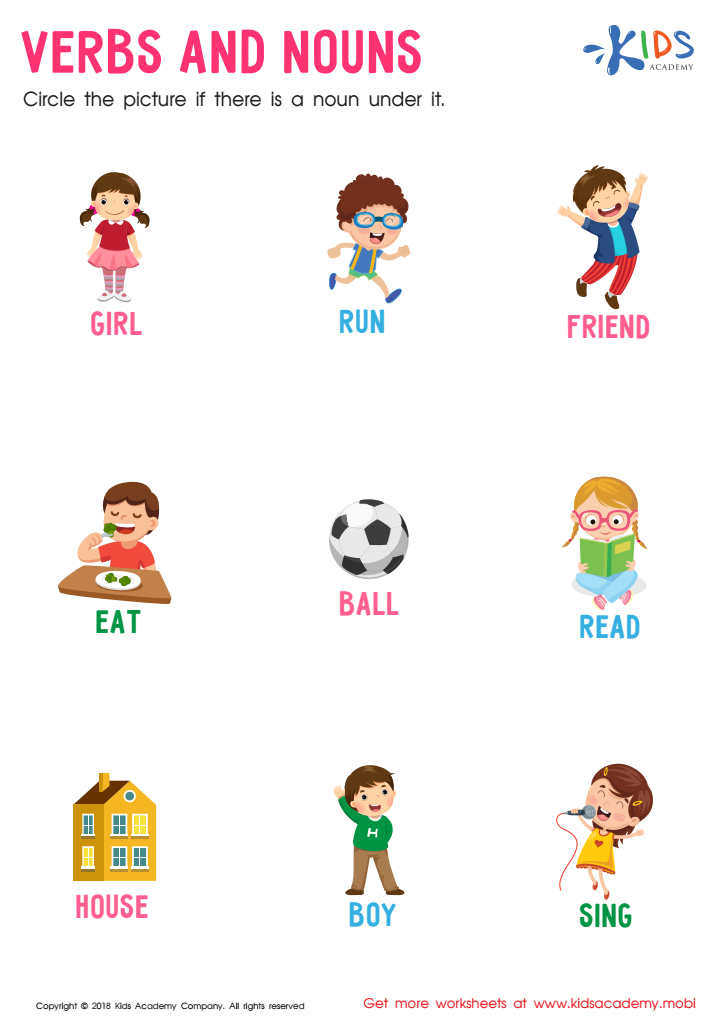

Verbs and Nouns Worksheet
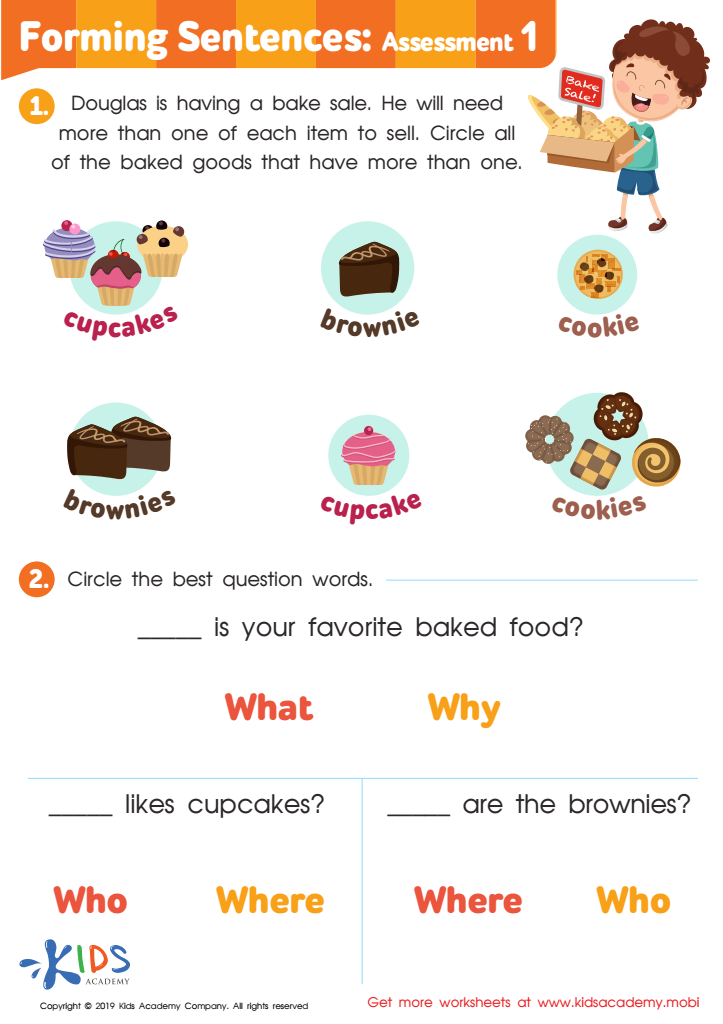

Forming Sentences: Assessment 1 Worksheet
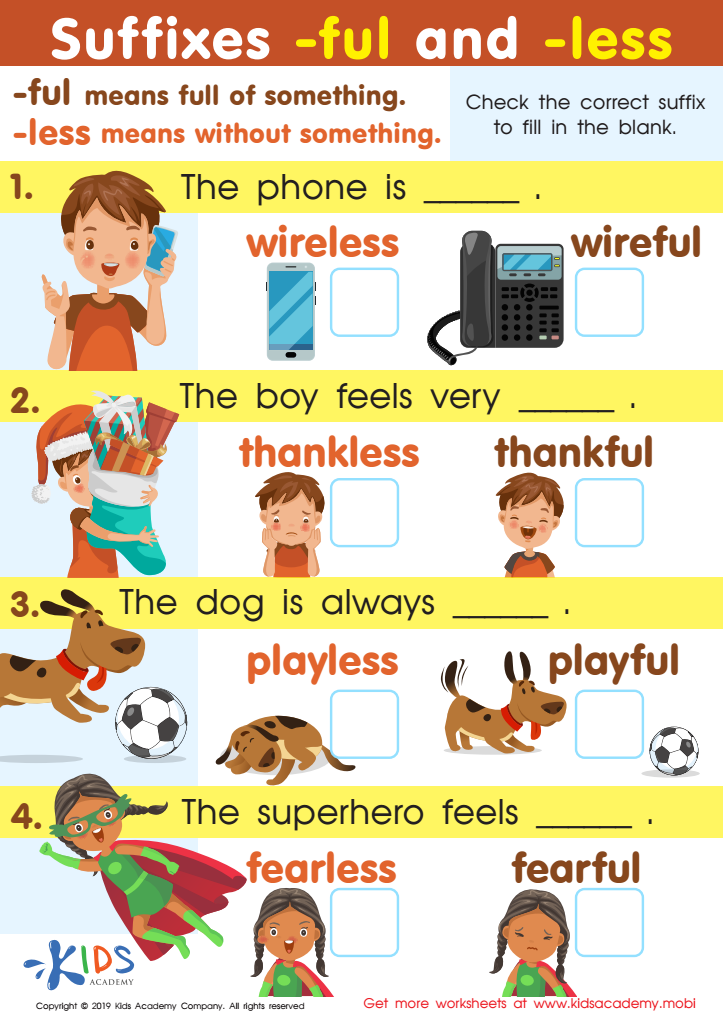

Suffixes –ful and –less Worksheet
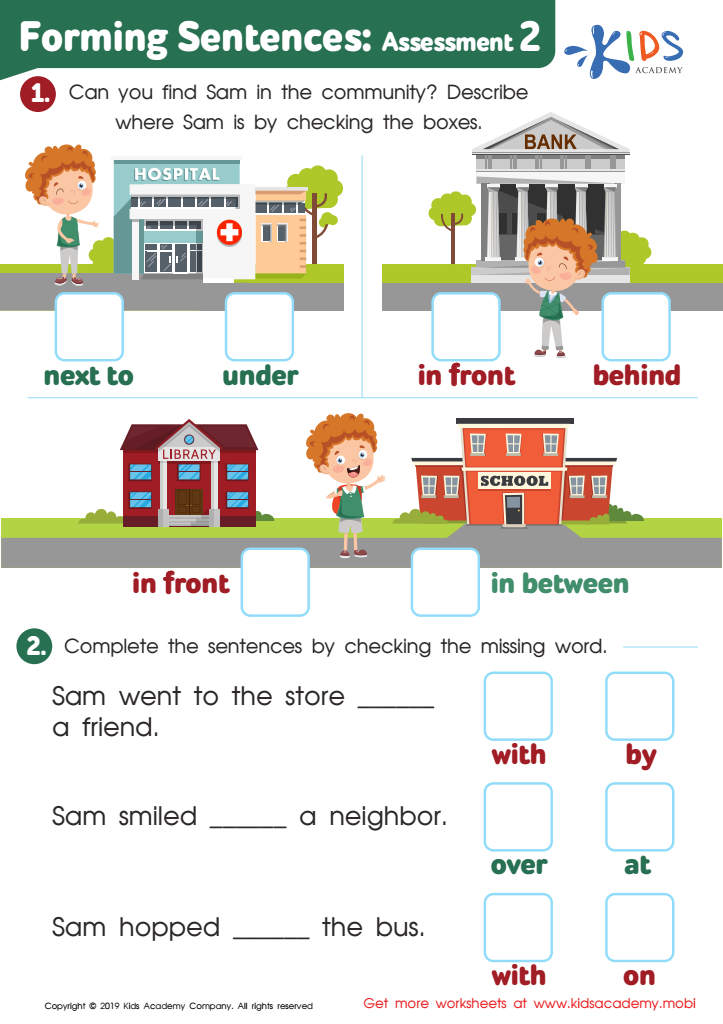

Forming Sentences: Assessment 2 Worksheet
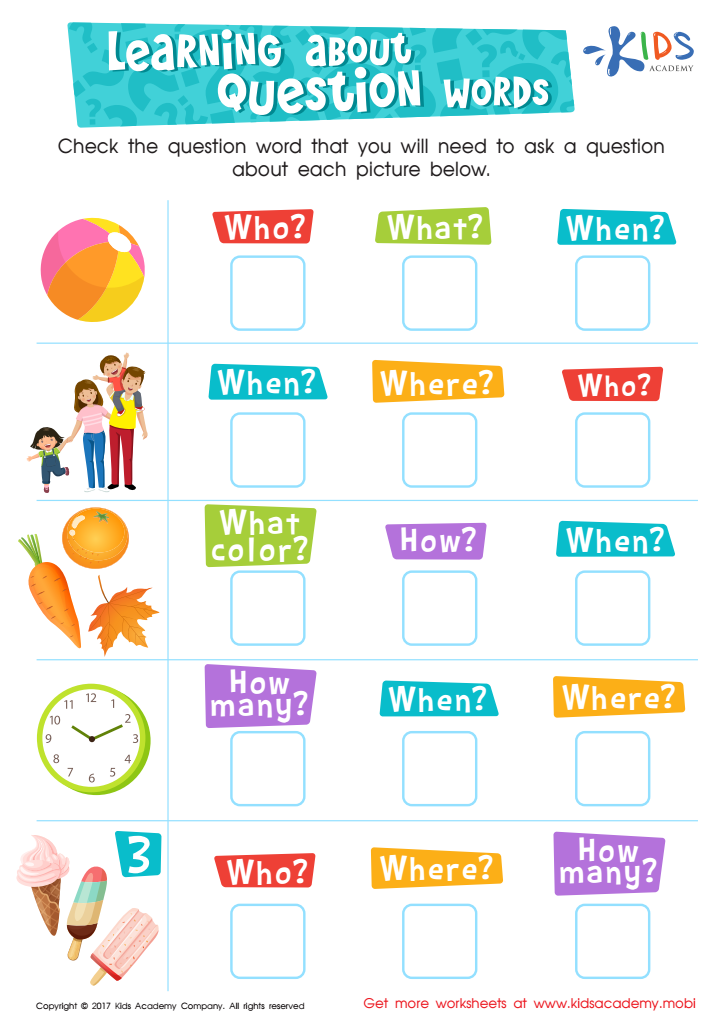

Learning about Question Words Worksheet
Grammar practice for children aged 3-5 is essential for several reasons. First and foremost, it forms the foundation for effective communication. At this developmental stage, children are rapidly acquiring language skills, and introducing basic grammar concepts helps them construct coherent sentences, enhancing both their verbal and written expression.
Engaging in grammar practice, through games and storytelling, fosters a love for language and instills confidence in children as they begin to navigate conversations and express their thoughts. Furthermore, research shows that early exposure to grammar can improve literacy skills, which are crucial for future academic success.
Additionally, practicing grammar encourages critical thinking. When children learn to understand the structure of sentences, they develop the ability to recognize patterns in language. This cognitive skill aids in problem-solving and promotes overall linguistic competence.
Lastly, grammar practice enhances social interaction. As children learn the rules of language, they are better equipped to communicate with peers and adults, fostering relationships and improving emotional literacy. In essence, parents and teachers should prioritize grammar practice because it not only supports language development but also contributes to children's overall cognitive growth and social skills.
 Assign to My Students
Assign to My Students
